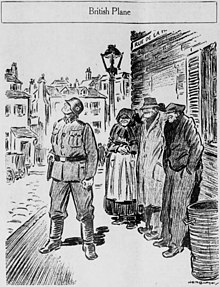1942 Pulitzer Prize
Appearance
The following are the Pulitzer Prizes for 1942.
Journalism awards
[edit]

- Public Service:
- Los Angeles Times for its successful campaign which resulted in the clarification and confirmation for all American newspapers of the right of free press as guaranteed under the Constitution.[1][2]
- Reporting:
- Stanton Delaplane of the San Francisco Chronicle for his articles on the movement of several California and Oregon counties to secede to form the State of Jefferson, a forty ninth state.
- Correspondence:
- Carlos P. Romulo of the Philippines Herald for his observations and forecasts of Far Eastern developments during a tour of the trouble centers from Hong Kong to Batavia.
- Telegraphic Reporting (National):
- Louis Stark of The New York Times for his distinguished reporting of important labor stories during the year.
- Telegraphic Reporting (International):
- Laurence Edmund Allen of the Associated Press for his stories of the activities of the British Mediterranean Fleet, written as an accredited correspondent attached to the fleet.[3]
- Editorial Writing:
- Geoffrey Parsons of the New York Herald Tribune for his distinguished editorial writing during the year.
- Editorial Cartooning:
- Herbert Lawrence Block (Herblock) of the Newspaper Enterprise Association for "British Plane".
- Photography:
- Milton Brooks of The Detroit News for his photo entitled, "Ford Strikers Riot".
Letters and Drama Awards
[edit]- Novel:
- Drama:
- No award given.
- History:
- Reveille in Washington, 1860-1865 by Margaret Leech (Harper).
- Biography or Autobiography:
- Crusader in Crinoline by Forrest Wilson (Lippincott).
- Poetry:
- The Dust Which Is God by William Rose Benet (Dodd, Mead).
References
[edit]- ^ "Pulitzer award won by 'Times'". Los Angeles Times. May 5, 1942 – via Newspapers.com. (Part 2 of article)
- ^ Matt Ballinger. "The Times' 1942 Pulitzer Prize". Los Angeles Times. Retrieved 2020-08-08.
- ^ "Larry Allen's Mediterranean stories win Pulitzer Prize". Palladium-Item. Richmond, Indiana. AP. May 5, 1942 – via Newspapers.com.


